Verde River Watershed Report Card
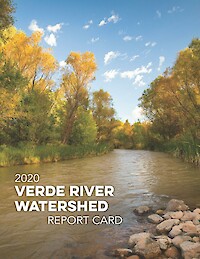
The Nature Conservancy and Friends of the Verde River released the first-ever Verde River Watershed Report Card in February. Overall, the Verde Watershed earned a score of 57%, a C+.
Alexandria, VA
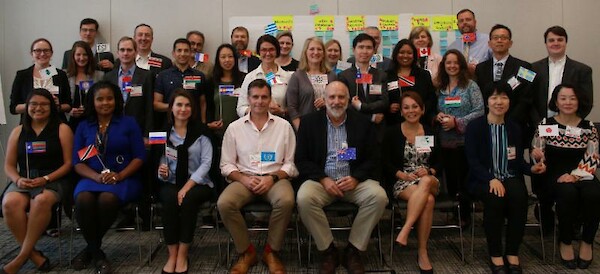
Bill, Emily, Heath, Katie May, Max, and Sky facilitated a 3-day workshop for about 40 participants hosted at NSF to develop evaluation models for transdisciplinary research. The workshop was hosted by the Belmont Forum, a global consortium of national level funding agencies that focus on co-development of solutions to societal problems.
Verde River conference in Camp Verde, Arizona
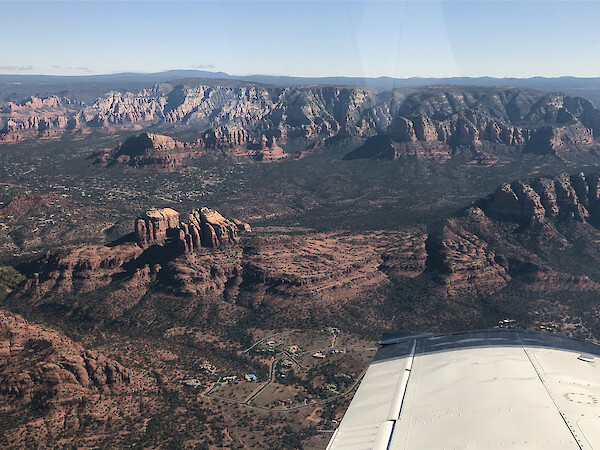
Bill Dennison, Andrew Elmore, and Emily Nastase attended the second biennial State of the Verde Watershed conference. Focus groups discussed the preliminary results of the Verde River Watershed Report Card. Report card indicator methods and scores were generally well-received, although some adjustments will be made moving forward. Thanks to the hard work of the report card team and input from conference participants, the Verde River Watershed Report Card is on track to be released in February 2020. Read Emily's blog about the conference here.
Farewell, Emily!
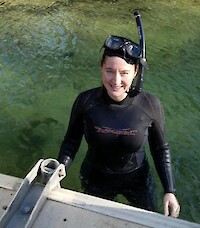
At the end of last month, IAN said a very fond farewell to science communicator Emily Nastase. Emily worked for IAN for almost three years on a broad range of projects and products. Whatever she was working on, Emily's artistic skills and work ethic were appreciated by all of us here at IAN. Emily is now starting her Master's degree at North Carolina State University, where she will study songbird ecology. Thanks for all you've done, Emily, and best of luck!
"Evaluating Transdisciplinary Approaches" now available online
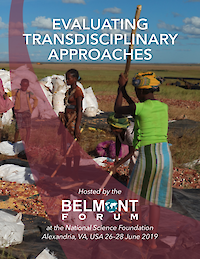
The Evaluating Transdisciplinary Approaches Workshop was convened by the Belmont Forum last summer. Workshop participants were part of a growing community of transdisciplinary research supporters and practitioners. The workshop goals were centered around participants exploring transdisciplinary research goals, metrics, and assessment. This workshop newsletter compiles the results of the workshop, outlines recommendations for how to evaluate transdisciplinary approaches, and provides current and past examples of transdisciplinary research.
IAN provides remote science communication course to IMET summer interns
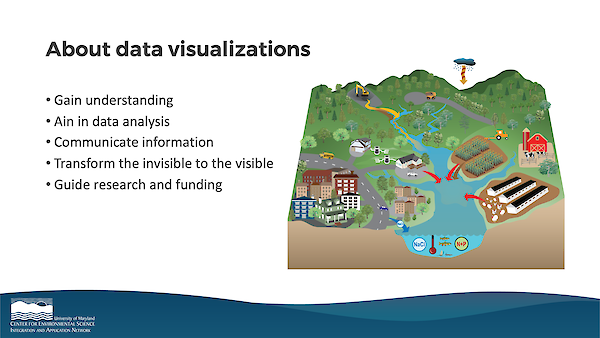
Annie Carew, Emily Nastase, and Nathan Miller taught an introductory science communication course for this year's IMET summer interns. While the ongoing COVID-19 pandemic has kept them from coming to IMET for the season, the interns will work together to analyze microbial data specific to Baltimore Harbor. The science communication course included storytelling strategies, designing theme statements, and a crash course in Adobe's Creative Cloud products, providing tools that the interns will use to promote their research this summer.
Facilitating a virtual Subject Matter Expert workshop
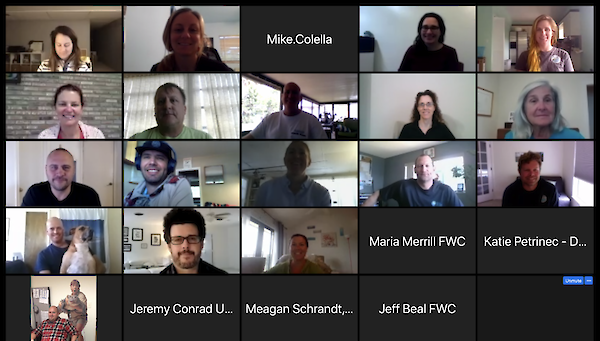
SEACAR is an ongoing project between IAN and the Florida Department of Environmental Protection. At this point in the project, it was necessary to run a workshop for the subject matter expert team to review the results of preliminary assessment analyses. Ideally, a 2-day meeting with this much material to cover, and which involves 45+ participants, would be conducted in person. Given the circumstances, IAN hosted and facilitated the full workshop virtually—and it was a success! The SEACAR team has a clear path forward and participants felt the workshop accomplished its goals.
The first Verde River Watershed Report Card was released in Arizona
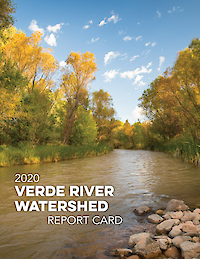
The Nature Conservancy and Friends of the Verde River released the first ever Verde River Watershed Report Card on February 18 in Camp Verde, AZ. This report card evaluated indicators that reflect three distinct values in the Verde watershed: Water, Habitat, and Communities. Overall, the Verde Watershed earned a score of 57%, a C+. This score indicates that while the watershed is in moderate condition, there is still room for improvement. In particular, some of the Water indicators scored poorly--or lacked data to be scored at all. Through their joint effort, the Nature Conservancy and Friends of the Verde River hope to raise the scores of these indicators, as well as the overall watershed score, in the future.
Facilitating the first SEACAR workshop
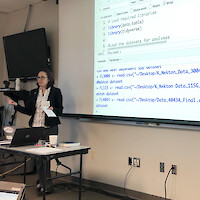
Caroline Donovan, Katie May Laumann, and Emily Nastase traveled to St. Petersburg, FL to facilitate the first Subject Matter Expert workshop for the Statewide Ecosystem Assessment of Coastal and Aquatic Resources (SEACAR) program. More than 40 Subject Matter Experts convened for this two-day meeting, and together made significant progress toward SEACAR's objectives. The second SEACAR workshop is scheduled for April 2020, where preliminary analyses will be reviewed. The final SEACAR technical and assessment reports are expected to be completed in summer 2020.
2018 Maryland Coastal Bays Report Card
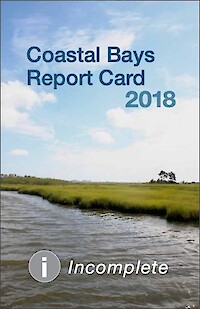
We produced the annual Maryland Coastal Bays Report Card with our partners at the Maryland Coastal Bays Program. The Bays received an Incomplete score for 2018 due to a lack of data.
Texas Coast Report Card
IAN staff and HRI scientists collaborated to produce the 2019 Texas Coast Ecosystem Health Report Card. The coastline scored a B- (80%), indicating moderately good ecosystem health.
Bhitarkanika Conservation Area Report Card now available
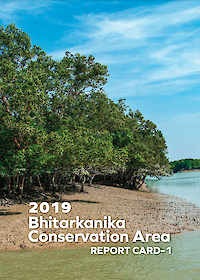
The first-ever report card for the Bhitarkanika Conservation Area in Odisha, India is now available! The National Centre for Sustainable Coastal Management (NCSCM), Ministry of Environment, Forest and Climate Change (MoEF&CC), jointly with the Odisha Forestry Sector Development Project (OFSDP-II) and the University of Maryland Center for Environmental Science, brought together over 40 local and regional experts and stakeholders in February 2019. Together the group chose ecosystem health indicators, thresholds and a reporting framework for Bhitarkanika Conservation Area.
Bhitarkanika Report Card captures current conditions within the conservation area, including the Eco Sensitive Zone, Bhitarkanika Wildlife Sanctuary, Bhitarkanika National Park, Critically Vulnerable Coastal Area and the Gahirmatha Marine Sanctuary. Overall, Bhitarkanika is in good condition. Indicator scores were “excellent” in Maipura and Gahirmatha and “good” in Bhitarkanika, Dhamra, Brahmani and Mahanadi.